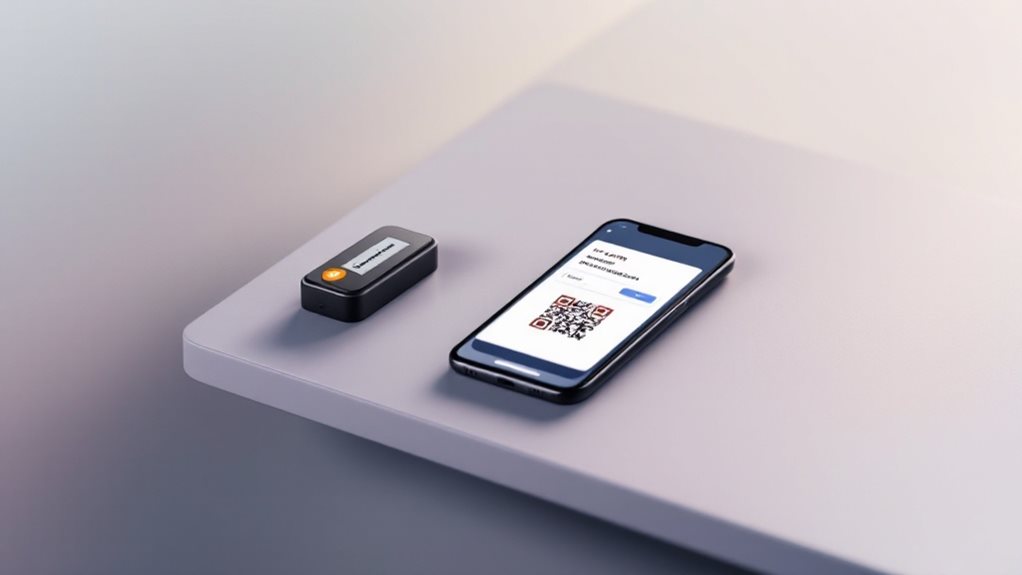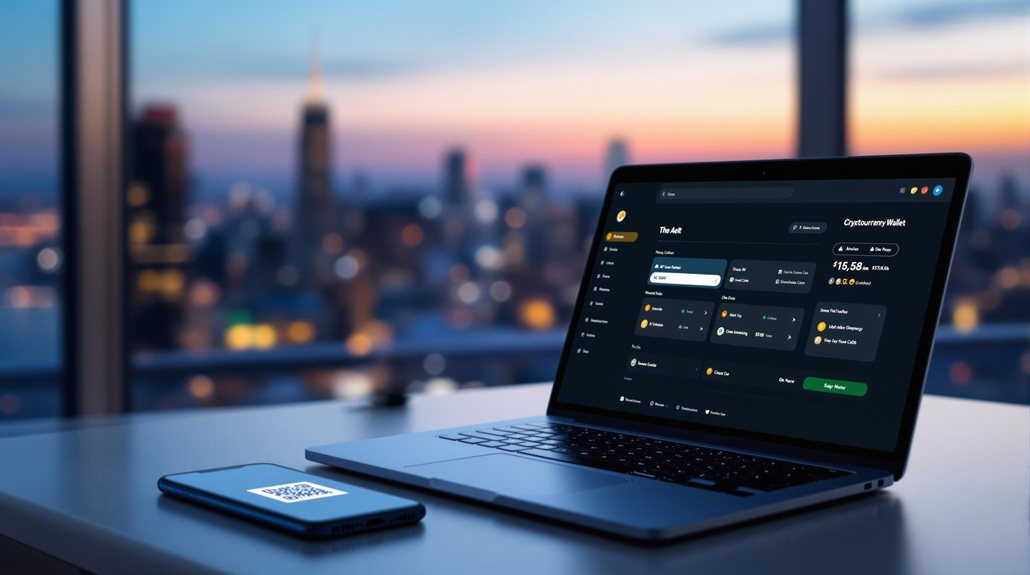A Bitcoin wallet isn't a physical wallet – it's a digital tool that stores special codes called cryptographic keys. These keys let people access, send, and receive Bitcoin on the blockchain network. There are different types of wallets, including hardware devices that look like USB drives, software programs for computers and phones, and even paper versions. While some wallets connect to the internet, others stay offline for better security. Understanding wallet options helps users protect their Bitcoin effectively.

A Bitcoin wallet serves as a digital toolbox that lets people store and manage their Bitcoin cryptocurrency. It's important to understand that these wallets don't actually hold physical coins. Instead, they store special codes called cryptographic keys that give users access to their Bitcoin on the blockchain, which is like a digital ledger that records all transactions. Just as Venmo users need a username to receive money, Bitcoin users need their wallet address to receive cryptocurrency. Today's users must exercise full security responsibility since Bitcoin's decentralized nature means there's no central authority to help recover lost funds.
Bitcoin wallets come in different forms to suit various needs. Hardware wallets are physical devices that look similar to USB drives and keep Bitcoin offline for better security. Software wallets are programs that can be installed on computers or phones, making it easy to send and receive Bitcoin. Some people even use paper wallets, which are simply printouts of their cryptographic keys. Users should ensure their wallets utilize secure element chips for enhanced protection of private keys. Unlike centralized solutions, these wallets provide users with direct control over their cryptocurrency assets without relying on third-party providers.
Every Bitcoin wallet has two critical keys: a public key and a private key. The public key works like an email address – it's what users share with others to receive Bitcoin. The private key is more like a password that shouldn't be shared with anyone. It's used to approve transactions and prove ownership of Bitcoin. Wallets also include a seed phrase, which is a list of words that can restore access to the wallet if it's ever lost or damaged.
When it comes to connecting to the internet, wallets are classified as either "hot" or "cold." Hot wallets stay connected to the internet, making them convenient for frequent trading but potentially more vulnerable to hackers. Cold wallets stay offline, offering better security but less convenience for regular transactions.
Modern Bitcoin wallets include several security features to protect users' funds. Many use two-factor authentication, which requires a second verification step beyond just a password. Some wallets offer multi-signature functionality, meaning multiple people need to approve a transaction before it can happen. Newer wallets even include biometric security features like fingerprint scanning or facial recognition.
The user interface of a Bitcoin wallet typically shows the current balance and transaction history. It lets users send or receive Bitcoin by entering addresses and amount values. Behind the scenes, the wallet encrypts sensitive information to keep it safe from unauthorized access. Regular security updates help protect against new threats and keep the wallet functioning properly.
These features work together to create a secure and user-friendly way for people to participate in the Bitcoin network.
Frequently Asked Questions
Can I Use My Bitcoin Wallet to Store Other Cryptocurrencies?
It depends on the type of wallet.
Bitcoin-only wallets can't store other cryptocurrencies, as they're designed just for Bitcoin.
However, multi-currency wallets can hold Bitcoin and other cryptocurrencies at the same time.
These multi-currency wallets are popular with people who want to keep different types of crypto in one place.
Each wallet clearly states which cryptocurrencies it supports in its features list.
What Happens to My Bitcoin if I Forget My Wallet Password?
When someone forgets their Bitcoin wallet password, they can't access their funds. It's like being locked out of a digital safe.
There are several recovery options available – from using backup seed phrases to trying specialized password recovery services. Without a solution, the Bitcoin remains permanently stuck.
Statistics show about 20% of all Bitcoin is currently lost due to forgotten passwords, worth around $140 billion as of 2021.
How Much Does It Cost to Set up a Bitcoin Wallet?
Setting up a bitcoin wallet can be free or cost several hundred dollars, depending on the type chosen.
Most software-based "hot wallets" are free to download, while mobile wallet apps typically cost $0-5.
Hardware-based "cold wallets" are more expensive, ranging from $50-250.
Paper wallets only require printing costs.
Some wallets charge extra fees for premium features like enhanced security or exchange integration, usually between $10-20 per month.
Are Hardware Wallets Safer Than Mobile Wallets for Storing Bitcoin?
Hardware wallets are generally considered safer than mobile wallets for storing Bitcoin. They keep private keys offline in a secure chip, making them less vulnerable to hackers and malware.
Mobile wallets, while more convenient, are connected to the internet and face risks from viruses, theft, and phishing attacks.
Hardware wallets also have extra security features like PIN protection and encrypted backup phrases, but they're more expensive and can be lost or damaged.
Can Someone Track My Bitcoin Transactions Through My Wallet Address?
Yes, Bitcoin transactions can be tracked through wallet addresses.
Since Bitcoin uses a public blockchain, anyone can view all transactions, amounts, and wallet addresses. It's like a giant public database that shows the flow of Bitcoin between wallets.
While wallets don't directly reveal personal information, repeated use of addresses and interactions with exchanges can potentially link transactions to real identities through blockchain analysis tools.





